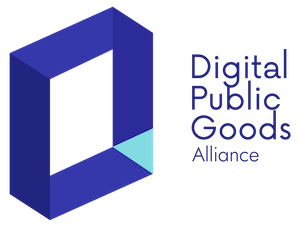public health systems
See the following -
HLN's Immunization Calculation Engine (ICE) chosen as a Digital Public Goods Standard
 HLN Consulting is thrilled to announce that the Immunization Calculation Engine (ICE) project has been chosen by the Digital Public Goods Alliance (DPGA) as an innovative openly licensed technology and listed in their Digital Public Goods registry. Technologies included in the list are considered to be digital public goods in alignment with the Digital Public Goods Standard. ICE now appears in the Digital Public Goods registry where it is discoverable as a digital public good and reflected on a growing network of catalogs and aggregated lists of digital public goods.
HLN Consulting is thrilled to announce that the Immunization Calculation Engine (ICE) project has been chosen by the Digital Public Goods Alliance (DPGA) as an innovative openly licensed technology and listed in their Digital Public Goods registry. Technologies included in the list are considered to be digital public goods in alignment with the Digital Public Goods Standard. ICE now appears in the Digital Public Goods registry where it is discoverable as a digital public good and reflected on a growing network of catalogs and aggregated lists of digital public goods.
- Login to post comments
ONC HTI-1 NPRM Through Public Health Eyes
 On April 18, 2023, the Office of the National Coordinator for Health Information Technology (ONC) published for comment the Health Data, Technology, and Interoperability: Certification Program Updates, Algorithm Transparency, and Information Sharing (HTI-1) Proposed Rule which proposes new provisions from the 21st Century Cures Act and makes updates to the ONC Health IT Certification Program (Certification Program). Weighing in at over 500 pages (the pre-release version), this proposed rule provides some refinements to existing ONC programs, corrections to others, and extensions to yet other provisions. ONC provides additional materials about this proposed rule, including fact sheets, blog posts, and records from topical webinars on their website. Note especially the information provided about a joint ONC-CDC sponsored informational webinar which took place on May 24, 2023, and is available for playback on the site.
On April 18, 2023, the Office of the National Coordinator for Health Information Technology (ONC) published for comment the Health Data, Technology, and Interoperability: Certification Program Updates, Algorithm Transparency, and Information Sharing (HTI-1) Proposed Rule which proposes new provisions from the 21st Century Cures Act and makes updates to the ONC Health IT Certification Program (Certification Program). Weighing in at over 500 pages (the pre-release version), this proposed rule provides some refinements to existing ONC programs, corrections to others, and extensions to yet other provisions. ONC provides additional materials about this proposed rule, including fact sheets, blog posts, and records from topical webinars on their website. Note especially the information provided about a joint ONC-CDC sponsored informational webinar which took place on May 24, 2023, and is available for playback on the site.
- Login to post comments
The Changing Face of Public Health System Procurement
 The development and acquisition of public health systems is poised to change. Historically, public health agencies had the classic choice when it came to acquiring a new data system. Either they developed the system themselves – usually based on a belief that their requirements were “unique” – or they licensed a COTS/GOTS product from the limited choices available in a small market. Typically, agencies that chose to develop solutions were forced to use a waterfall approach as government procurement is not well suited to the flexibility of Agile systems development. Some agencies have been able to leverage open source offerings. While most do not have the wherewithal to support open source products themselves, many have formed strong partnerships with other organizations, both for-profit and nonprofit, to take advantage of these systems.
The development and acquisition of public health systems is poised to change. Historically, public health agencies had the classic choice when it came to acquiring a new data system. Either they developed the system themselves – usually based on a belief that their requirements were “unique” – or they licensed a COTS/GOTS product from the limited choices available in a small market. Typically, agencies that chose to develop solutions were forced to use a waterfall approach as government procurement is not well suited to the flexibility of Agile systems development. Some agencies have been able to leverage open source offerings. While most do not have the wherewithal to support open source products themselves, many have formed strong partnerships with other organizations, both for-profit and nonprofit, to take advantage of these systems.
- Login to post comments